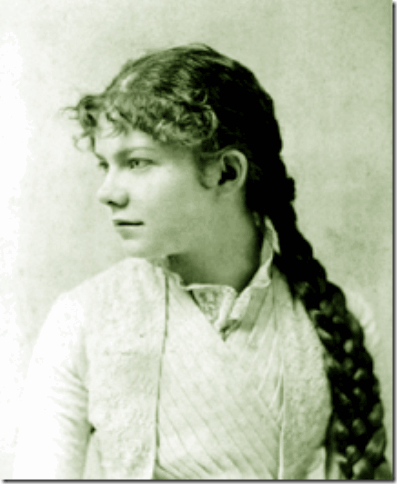It is one of the great mysteries of American musical life: Why, in a country that has produced so many fine classical composers, does the average person know nothing of their music?
There are any number of reasons that are usually trotted out to explain this phenomenon, from the overwhelming dominance of American popular music worldwide to the lack of arts education in the schools. But probably the biggest reason is that our performers and performing ensembles, for reasons ranging from box office concerns to repertory unfamiliarity, don’t regularly program American music.
All of which made Sunday’s concert of the Palm Beach Chamber Music Festival, the second program in a series of four, so gratifying. In addition to little-known 20th-century French music, the festival offered a committed, passionate reading of the Piano Quintet (in F-sharp minor, Op. 67) by Amy Beach, one of the leading lights of the so-called New England Classicists.
Beach’s quintet, premiered in 1908, is a serious and substantial piece of late Romantic writing, full of drama, intensely emotional, and immediately accessible. Beach was quite a conservative composer, and she does not have the daring of younger colleagues such as Griffes and Ives. But that’s not what she was after (though her late String Quartet of 1929 is much more progressive, and has something of the flavor of Verklärte Nacht). The Quintet is perhaps closest in spirit to Max Reger, drawing on a Brahmsian aesthetic, but laid out in a much more extravagant manner.
Fittingly, the work was played by five female musicians: Pianist Lisa Leonard, violinists Mei Mei Luo and Dina Kostic, violist Rene Reder and cellist Susan Moyer Bergeron. Beach tends to write in blocks, with the four string players and the piano alternating as much as they work together; only in a short fugal section in the finale did some other vistas open up. The four string players made a tight, flexible unit, playing with verve and power in the first movement, which had a tense, high-strung feeling throughout.
The four played the muted-strings opening of the slow movement with the right kind of Mahlerian intensity, but without succumbing to schmaltz; pianist Leonard, when she entered, also kept the music, which verges on the edge of overripeness, from going overboard. That allowed Beach’s gift for tender melody to show itself and to contrast sharply with its fevered middle section.
The finale, which is somewhat labored, is a little harder to bring off because of its relentlessness, but Leonard’s crisp chromatic scales and a nice solo passage by Reder helped leaven the texture, along with the fugal passage I mentioned earlier. The music won over the audience at Delray Beach’s Crest Theatre, which got to its feet to acclaim it.
It will be good to hear this same group of five women in the fourth week of the festival, when they’ll be tackling another late Romantic piano quintet, the Op. 1 of Ernst von Dohnanyi.
The Beach occupied the second half of the concert; the first began with the early Serenade (in D, Op. 25) for flute, violin and viola of Beethoven. Flutist Karen Dixon was joined by Kostic and Reder for this reading of this charming, bubbly work, which devotes much of its time to variation.
The three women offered a genial, gentle reading of this Serenade, with stately tempos (except for the third movement) and an atmosphere of charming entertainment. Dixon’s round, pretty sound was a pleasure to hear, and Kostic and Reder proved able collaborators. Overall, it might have been too relaxed; the minor-key third movement offered some real zest, but the fourth movement variation set would have benefited from sharper contrasts between the different elaborations.
The closing work on the first half was a rarity, the Dixtour (Dectet) for winds by the French composer Claude Arrieu. Trumpeter Marc Reese’s oral program notes, which recycled a bit from last year about his ostensible rap career, were not helpful; it would have been good to point out that Arrieu was a pen name for a woman named Louise-Marie Simon, and that she had a long and distinguished career for French state radio.
Arrieu’s dectet, written in 1967, is very much in the rich French tradition of wind writing explored by composers such as Ibert and Bozza. Scored for two flutes, oboe, two clarinets, two bassoons, horn, trumpet and trombone, Arrieu finds many good combinations in that ensemble, particularly in the bass registers, with bassoons, horn and trombone making a wonderful sepulchral sound.
It’s very effective, well-written music, but with a somewhat anonymous profile, something like Roussel but without his energy. She’s fond of unexpected endings, and of elegant melodies that, like the Beethoven Serenade before it, summon up scenes of leisure and bonhomie.
The 10 musicians sounded well-rehearsed and committed; oboist Erika Yamada was especially good in the third movement, and clarinetists Michael Forte and Scott Ellington led off the second movement beautifully. The players had clearly thought about the maximizing this music’s color, which is what this dectet is all about, and they did so memorably.
Although the piece itself is a little too quirky to be completely satisfying, it’s a fine work, and it stands as another example of the kind of good discoveries this festival has brought to its audiences for more than two decades.
Week 3 of the Palm Beach Chamber Music Festival’s summer series is set for 7 p.m. Friday at Persson Hall at Palm Beach Atlantic University, 8 p.m. Saturday at the Eissey Campus Theatre in Palm Beach Gardens, and 2 p.m. Sunday at the Crest Theatre in Delray Beach. Music by Bozza, Rossini, Khachaturian and Clifford Shipp is on the program, along with the String Quintet No. 2 (in G, Op. 77) of Dvořák. Tickets are $25. Call 800-330-6874 or visit www.pbcmf.org.
